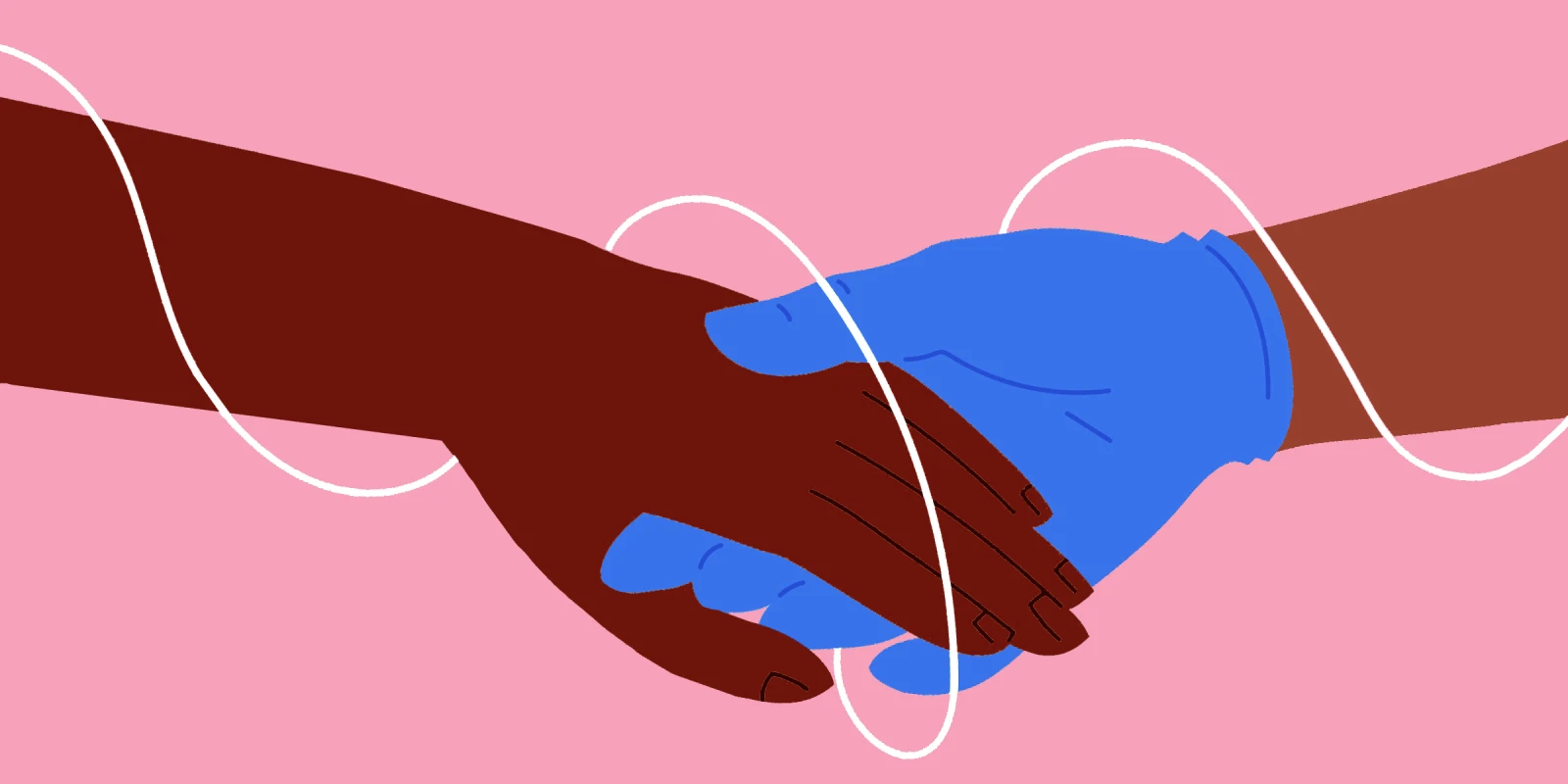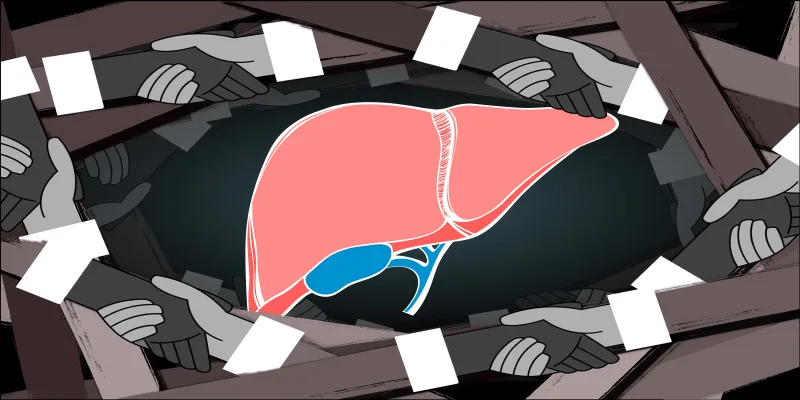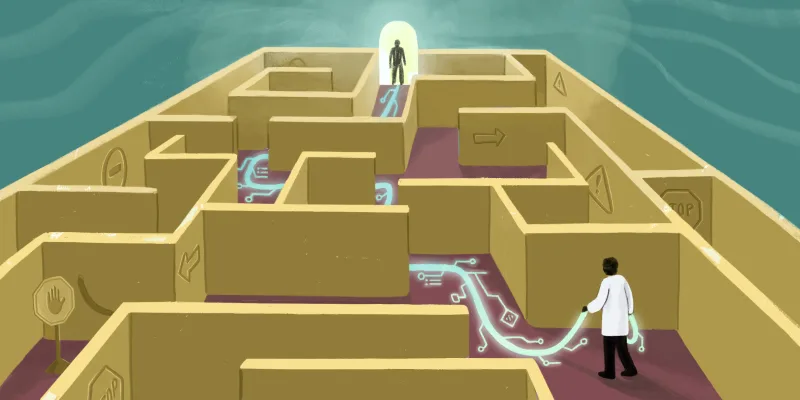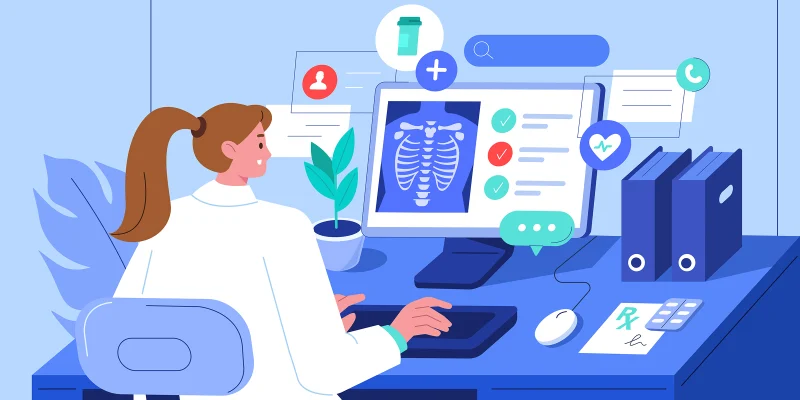“Good morning, Marissa! How’d you sleep?” I chirped as I eagerly entered the room of my favorite patient.
“I slept OK,” Marissa answered, then paused. She slowly raised her eyes to mine and quietly asked, “Am I going to die?”
As I considered her question, I thought back to five weeks prior. I had just begun my internal medicine rotation. This was my last clerkship of third year, so I felt more reassured in my own skills as I walked into every patient's room. I knew how to take a history and perform a physical exam. However, what I hadn’t done up until that point was build a long-standing relationship with a patient. I had grown used to seeing patients for one outpatient visit or a few days in the hospital before either the patient got discharged or I had another rotation to move onto.
The morning I met Marissa, I walked into her room with a little piece of paper with the clinical features of endocarditis. All I knew about Marissa at that point was that she had a large vegetation found on her tricuspid valve and there was a concern she was shooting septic emboli to her lungs. When I entered, Marissa was sitting quietly in her bed with the sunlight beaming in through the window. The first thing I noticed was how young she looked. Her age was written on my little piece of paper, but it hadn’t registered until that moment. I was only a few years younger than her.
Our conversation that first morning was polite but not very revealing. She answered all of my questions but didn’t offer up much detail, and I refrained from pushing further. I knew she had a long road ahead of her with several people asking a lot of questions. I visited her early the next morning and the next, and our encounters played out similarly. I asked how she was feeling, did my physical exam, and asked if there was anything I could do for her. Each morning up until that point, I reintroduced myself:
“Hi, I’m Srishti. We have met before, but I know you have so many people come and see you throughout the day so I just wanted to reintroduce myself. I’m the medical student on the team.” I recited the same dialogue every morning for four days.
Finally, on the fifth morning, as I was getting ready to give my introduction again, Marissa laughed and said, “I remember who you are! You don’t have to keep telling me!” In that moment, the ridiculousness of my four consecutive introductions dawned on me, and I laughed too. After that day, our morning visits changed.
I learned more about Marissa and I could feel the trust between us strengthening. Some days, I’d walk in and Marissa would be frustrated with her roommate. Other days, she’d tell me about doctors who would come to see her and how she thought they were robots. She occasionally asked me to reach out to her family and give them updates. I happily obliged and was not surprised to find her family was as endearing as she was. Marissa had undoubtedly become my favorite patient.
I was in awe of her strength and her patience. There were days I could sense she was feeling confined to the walls of the hospital, but she always remained calm, kind, and appreciative of everyone around her. I don’t think I would have been able to maintain the level of grace she always did.
For weeks, a multidisciplinary team at the hospital discussed Marissa’s care. They were debating whether or not surgery would be an option. For a while, we had no updates. We were simply treating her with antibiotics until a decision could be made. When five weeks later a date for surgery was scheduled, I was excited to finally have an update for her. That was the morning she asked me the million-dollar question.
“Am I going to die?”
I remained silent for a few seconds. I slowly sat on the window ledge by her bed and gave her the most honest answer I had: “I don’t know.”
No amount of practice sessions or simulations could have prepared me for that moment. I could think of no mnemonic or evidence-based calculation that could tell me what exactly to say. So, in the end, I settled for the truth.
I told her that the surgery she was about to undergo was serious. I told her that her anxiety going in was completely valid. I told her that she was incredibly brave and that I had become her biggest fan. I told her that I had hope.
Marissa knew that I didn’t have the answer to her question. No one did.
In all honesty, I don’t know how much of that helped, but it’s what felt the most right in the moment. I have come to realize that while a lot of medicine is indeed formulas and stepwise management, there are some moments that simply need to be handled by the heart. We owe it to our patients to give them thoughtful answers when they ask us these questions. It is a sign of great trust to be a witness to these moments of vulnerability.
I have Marissa to thank for our friendship. Would we have ever built such a bond if she hadn’t interrupted my rehearsed and verbose introduction? Maybe our daily visits would have played out the exact same each day. Or perhaps we would have never found an opportunity to laugh together and Marissa would see me just as she saw many of the others who came to evaluate her: silent and robotic.
As I move further along my career in medicine, I know the number of patients and responsibilities will both increase. Yet, I hope that I will think of Marissa and remember to lift the veil of professionalism to allow for moments of honesty and vulnerability. I hope I can allow for a space where patients can ask me the question: “Am I going to die?”
What questions have patients asked that you could not answer? Share in the comments.
Srishti Dhar is a rising fourth-year medical student at Cooper Medical School of Rowan University. You can follow her at @srishti_dhar on Twitter.
Disclaimer: Patient name and age have been altered to maintain anonymity.
Image by fedrelena / GettyImages







